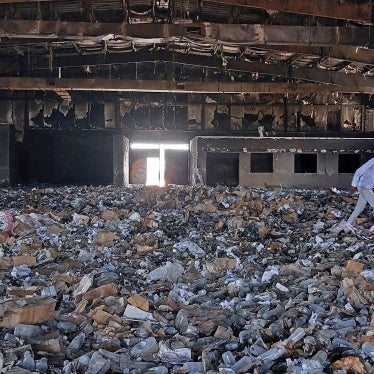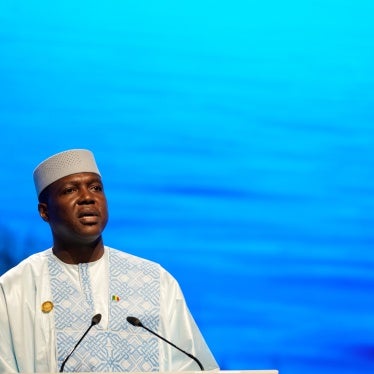The human rights situation in Côte d'Ivoire continues to deteriorate, with violence against civilians escalating sharply since armed clashes broke out in late February between forces loyal to Alassane Ouattara and Laurent Gbagbo.
During some 20 days of field work in Abidjan in January and March, as well as a week on the Liberian-Ivorian border in late December, Human Rights Watch documented an organized stream of abuses by Gbagbo's security forces, including killings, forced disappearances, politically-motivated rape, and excessive use of force against largely peaceful demonstrators. The violence has intensified since mid-February, with documented cases of real and perceived Ouattara supporters being burned alive, beaten to death with bricks and concrete, executed at point-blank range, gang raped, and disappeared. Human Rights Watch has further documented the systematic nature of abuses by Gbagbo's forces that when combined with the type of the crimes committed is sufficient to trigger the characterization as crimes against humanity. The death toll of at least 392 victims, documented by the UN, indicates the widespread nature of the crimes.
Victims and witnesses have routinely implicated two elite security force units closely linked to Gbagbo, the Republican Guard and CECOS, as well as two violent militia groups long loyal to him, the Young Patriots and FESCI, as most directly responsible for this violence. Gbagbo's television station, Radiodiffusion Télévision Ivorienne (RTI), has incited violence on a near daily basis against UN peacekeepers, West African nationals, and Ouattara supporters.
In recent weeks, West African nationals in Côte d'Ivoire have suffered particularly heinous abuses, directly related to Gbagbo Youth Minister Charles Blé Goudé's February 25 public call to set up checkpoints and target foreigners. Residents from Mali, Burkina Faso, Nigeria, and Niger described daily attacks by pro-Gbagbo security forces and militia who beat victims to death, or doused them with gas and burned them alive. Hundreds more West African nationals have had their homes, stores, and mosques burned, or been chased out from their neighborhoods.
On the Ouattara side, armed fighters have begun a pattern of extrajudicial executions against detained alleged pro-Gbagbo combatants since the Forces Nouvelles gained effective control of Abobo neighborhood and Anyama village around February 26. Human Rights Watch documented 11 such cases from both witnesses and perpetrators - including three detainees who were burned alive and another four who had their throats slit, in practices amounting to war crimes under international humanitarian law. Credible reports indicate the death toll may be higher. In addition, a March 7 attack by pro-Ouattara fighters on a village near Abobo left at least 9 civilians dead, in an apparent case of collective punishment against Gbagbo supporters. The long history of abuses by Forces Nouvelles, documented by Human Rights Watch and others over the last decade, raises serious concerns as the crisis escalates toward full-scale armed conflict.
The Human Rights Council should immediately denounce the ongoing violations by both sides and call for a Commission of Inquiry to investigate human rights and humanitarian law violations committed during the post-election period. The commission's mandate should be broad enough to ensure that current and future crimes on both sides are investigated and should seek to determine the key perpetrators responsible.







